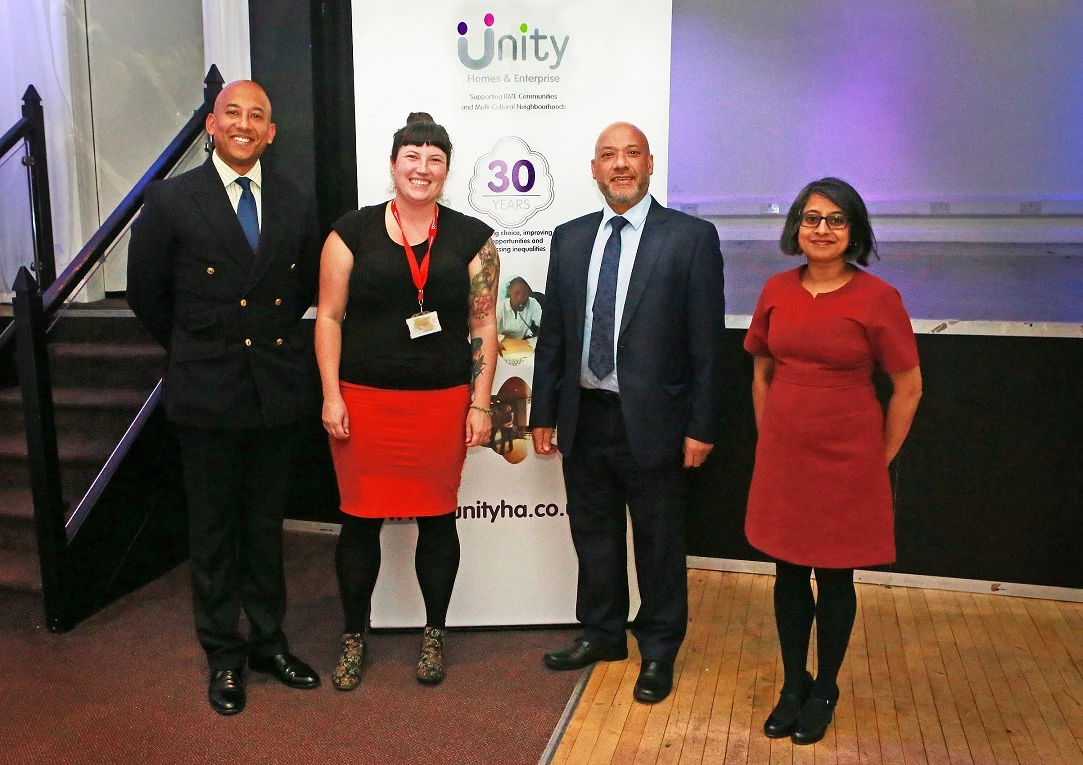
Partner Article
Unity can help to solve national housing crisis
The Chief Executive of Unity Homes and Enterprise has challenged Government ministers to draw on the experience and expertise of the housing association sector to tackle the national housing crisis.
Ali Akbor, who has led the Leeds-based housing association for almost two decades, told its Annual General meeting that Whitehall could not solve the housing shortage on its own.
“Last autumn, Unity was delighted to host Housing Minister Alok Sharma on a visit to two of our affordable housing developments in Leeds,” he said. “It was the first time a serving Government minister accepted such an invitation from us. Sadly, he was reshuffled to a different department shortly afterwards and his replacement has since been replaced.”
Mr Akbor said that he had since issued invitations to current Housing Minister Kit Malthouse and Housing Secretary James Brokenshire, “to follow in Mr Sharma’s footsteps and witness at first hand the good work Unity is doing to build new affordable homes and regenerate communities here.”
He continued: “Unity is proud to be a forward-thinking, outward-looking organisation that is driven by a collective determination to deliver for the communities we serve. We have a housing crisis in this country, which the Government freely acknowledges must be tackled. As Chief Executive of Unity Homes and Enterprise, I will continue to reach out to ministers and anyone else in Whitehall who wants to work with us to build the homes we need to improve local people’s lives.”
Mr Akbor told the audience of Unity partners, tenants and special guests that the association had enjoyed another successful year, including the completion of 58 new properties and the acquisition of a further 22, taking the number of affordable homes under its ownership to more than 1,300. Unity Enterprise, its not-for-profit subsidiary company, opened a new incubator in partnership with iota Business and Unity Employment Services helped almost 300 people to find work or improve their skills. The association has also been shortlisted for three national housing awards.
Opening the meeting at The Sheepscar function rooms in Chapeltown, Unity Chair Shruti Bhargava said it was important that the association continued its “social purpose,” which she defined as, “our commitment to improving lives in areas with high BME populations and turning them into vibrant multi-cultural neighbourhoods.”
She added: “I believe that Unity is a shining light to others in the rest of the country, including the housing sector and politicians; showing them what can be done to address inequality, bring communities together and improve people’s lives.”
This year’s Unity annual report had a First World War theme, in recognition of the forthcoming Armistice centenary and in tribute to the vital contribution of BME Commonwealth soldiers in that conflict and since.
Special guest speaker Colonel Karl Harris told the audience about the positive good work being done by the British Army’s Black, Asian and Minority Ethnic Network, which he chairs.
He said: “This is such an important year. The role that men and women of colour from all communities have played in the British Army for a hundred years and beyond is a story that isn’t necessarily told as much as it might be.”
And Lucy Moore, First World War Projects Curator at Leeds Museums and Galleries, gave a wide-ranging presentation on her research into the life of Bengali-born Jogendra Nath Sen.
She said: “He joined the Leeds Pals, the local volunteer battalion, in 1914. Military records tell us that he trained with them in their camp in North Yorkshire. He travelled with them to Egypt to guard the Suez Canal. He then went to France and was killed in action on 22 May 1916, just before the Battle of the Somme. Jogendra Nath Sen gave his life for the people of Leeds.”
This was posted in Bdaily's Members' News section by Barry White .
Enjoy the read? Get Bdaily delivered.
Sign up to receive our popular Yorkshire & The Humber morning email for free.








 Raising the bar to boost North East growth
Raising the bar to boost North East growth
 Navigating the messy middle of business growth
Navigating the messy middle of business growth
 We must make it easier to hire young people
We must make it easier to hire young people
 Why community-based care is key to NHS' future
Why community-based care is key to NHS' future
 Culture, confidence and creativity in the North East
Culture, confidence and creativity in the North East
 Putting in the groundwork to boost skills
Putting in the groundwork to boost skills
 £100,000 milestone drives forward STEM work
£100,000 milestone drives forward STEM work
 Restoring confidence for the economic road ahead
Restoring confidence for the economic road ahead
 Ready to scale? Buy-and-build offers opportunity
Ready to scale? Buy-and-build offers opportunity
 When will our regional economy grow?
When will our regional economy grow?
 Creating a thriving North East construction sector
Creating a thriving North East construction sector
 Why investors are still backing the North East
Why investors are still backing the North East